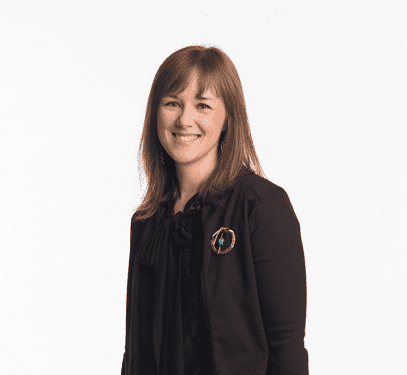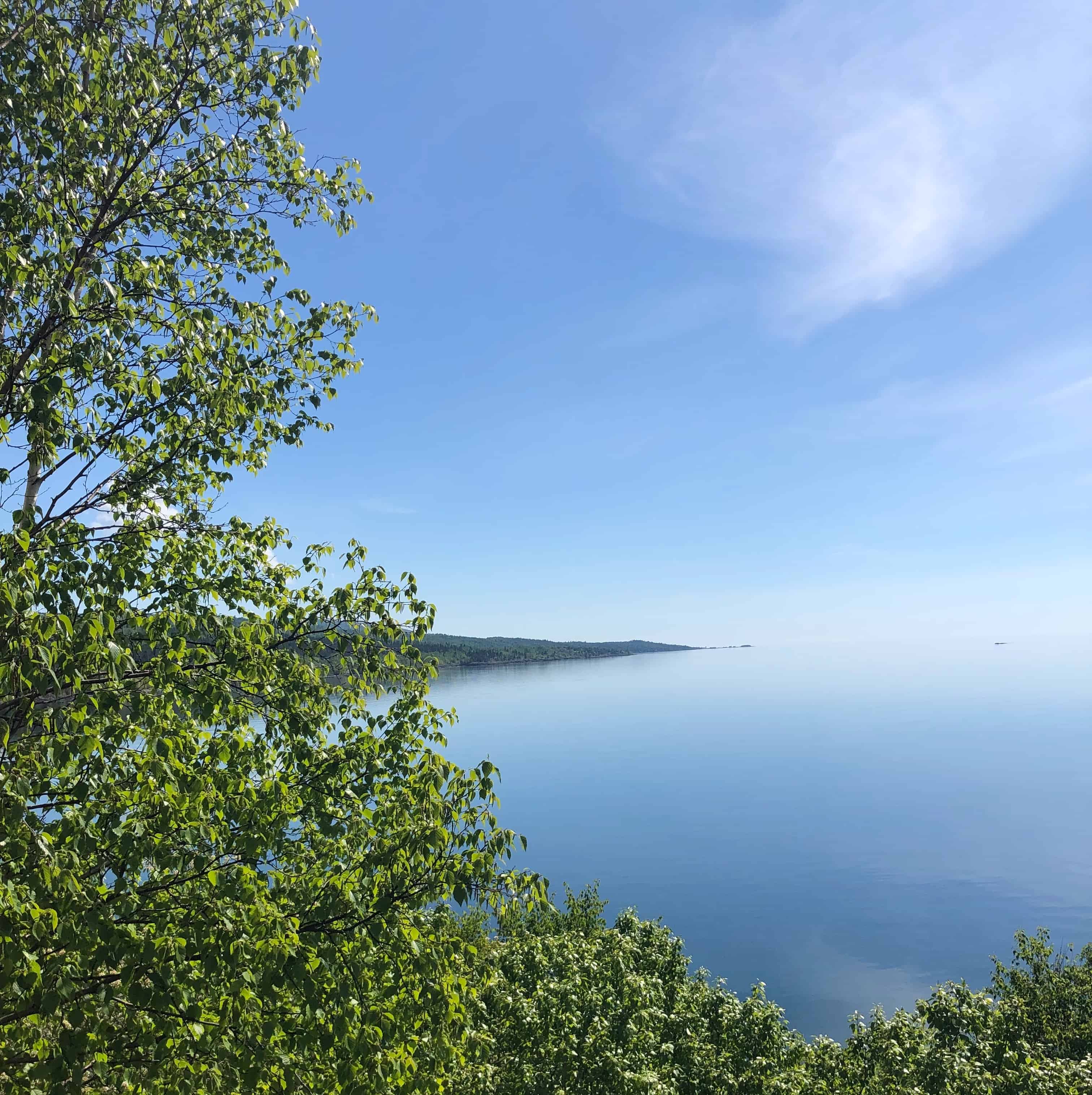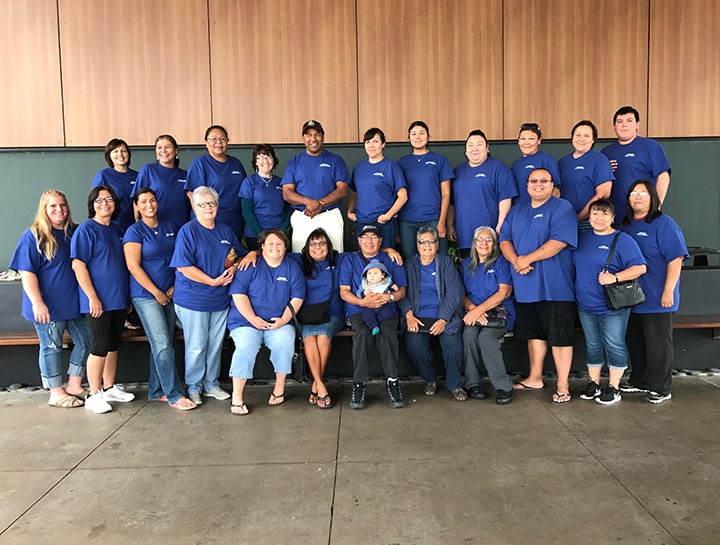
Melissa Walls, PhD (Bois Forte and Couchiching First Nation Anishinaabe) has been appointed associate professor at the Johns Hopkins Bloomberg School of Public Health and Director of the Great Lakes Hub for the Johns Hopkins Center for American Indian Health, which has partnered with Native American communities in the Southwest for over 30 years to improve health and well-being.
 The Center’s new hub, based in Duluth, MN, will build upon existing partnerships with hundreds of tribal members across 11 Ojibwe Bands. This collaboration will advance leading-edge research projects focusing on the etiology, consequences, and preventive interventions for diabetes, substance use, mental disorders, and physical health issues.
The Center’s new hub, based in Duluth, MN, will build upon existing partnerships with hundreds of tribal members across 11 Ojibwe Bands. This collaboration will advance leading-edge research projects focusing on the etiology, consequences, and preventive interventions for diabetes, substance use, mental disorders, and physical health issues.
Dr. Walls will continue to work in partnership with tribal partners to adapt Together on Diabetes, a family-centered diabetes prevention and management program developed by the Johns Hopkins Center for American Indian Health in collaboration with Southwestern Native American communities. Together on Diabetes was found to decrease body mass index and high blood pressure in American Indian adolescents diagnosed or at risk for type 2 diabetes. The Great Lakes team will be recruiting adults with diabetes and their adolescent children from five Ojibwe communities, seeking to help adults manage their diabetes and prevent the disease in their children.
“It’s often hard to change the behavior of individuals,” said Dr. Walls, “you can have a bigger impact if you get family norms to change.”
Translating research outcomes to policy to achieve greater impact is an explicit goal of her team’s efforts.
“Research as purely an academic exercise won’t fly with our communities—our goal is to influence policies and programs with the findings we generate,” said Dr. Walls.
After their Gathering for Health research found an association between mental and emotional health issues and diabetes-related health problems, Dr. Walls’s team worked with tribal clinics to implement the findings into a policy to screen diabetes patients for depression and refer them to mental health care.
To address the catastrophic nutritional transition from land-based, traditional foods to government sponsored commodities that indigenous communities have suffered over the past half century, Dr. Walls’s projects often integrate traditional stories about the land, water, and animals, and the planting and gathering of culturally vital foods like wild rice.
“The headlines are always ‘we’re sick, drunk, and dying young,’ said Dr. Walls. “We are rewriting the story to show that our communities have solutions to achieve health equity,” she said.
Dr. Walls has also investigated social determinants and risk and protective factors around a number of behavioral health issues such as anxiety, suicide, intimate partner violence, and substance use through Healing Pathways, a longitudinal research cohort established in 2002 that follows 742 American Indian and First Nations youth and their families living in the northern Midwestern United States and Ontario, Canada.
 “We are thrilled to open our first Great Lakes Hub in communities where Dr. Walls has built tremendously important partnerships over the past 17 years,” said Allison Barlow, PhD, Director of the Johns Hopkins Center for American Indian Health. “In collaboration with indigenous families and tribal leaders, Dr. Walls is making ground-up discoveries to reclaim well-being for the indigenous peoples of North America—her approach will generate findings to advance the entire field of prevention science.”
“We are thrilled to open our first Great Lakes Hub in communities where Dr. Walls has built tremendously important partnerships over the past 17 years,” said Allison Barlow, PhD, Director of the Johns Hopkins Center for American Indian Health. “In collaboration with indigenous families and tribal leaders, Dr. Walls is making ground-up discoveries to reclaim well-being for the indigenous peoples of North America—her approach will generate findings to advance the entire field of prevention science.”
Dr. Walls received her PhD from the University of Nebraska-Lincoln after serving as a National Institute of Mental Health Ruth Kirschstein National Research Service Award Predoctoral Fellow. She was recognized by the Robert Wood Johnson Foundation as an Interdisciplinary Research Leader in 2017 and comes to the Bloomberg School from the Department of Biobehavioral Health & Population Sciences, University of Minnesota Medical School, Duluth campus, where she was an Associate Professor.
Dr. Walls is also deeply connected to the tribal lands, which straddle Minnesota and Ontario,where her Anishinaabe family has lived for six generations. She participates in an indigenous women’s running group called Kwepack and in powwows as a jingle dancer.
For more information, see Johns Hopkins locates American Indian health research hub in Duluth.
News coverage about Dr. Melissa Walls’s new role as Director of the Great Lakes Hub for the Johns Hopkins Center for American Indian Health included:
- Johns Hopkins adds Minnesota researchers on American Indian health issues StarTribune
- Johns Hopkins locates American Indian health research hub in Duluth Duluth News Tribune
- Melissa Walls of Bois Forte and Couchiching First Nation Anishinaabe appointed to lead Great Lakes Hub for the Johns Hopkins Center for American Indian Health Indian Country Today
- FHS grad and researcher Melissa Walls to lead hub for Johns Hopkins Center for American Indian Health International Falls Journal
- Johns Hopkins Opens Data Research Center in Duluth Fox 21
- Center for American Indian Health expands to Upper Midwest Johns Hopkins University Hub
- Johns Hopkins’ move into Minnesota seen as gain for Indian health research The Circle
- On Indigenous Peoples Day, Johns Hopkins’ American Indian research hub celebrates its grand opening Duluth News Tribune.
- Johns Hopkins opens American Indian health hub in Duluth MPR News
- Johns Hopkins Hub opens on Indigenous Peoples’ day in Duluth CBS 3 Duluth
- Johns Hopkins Center for American Indian Health Opens in Duluth FOX 21
Top photo courtesy of Craig Bertram, Unsplash.